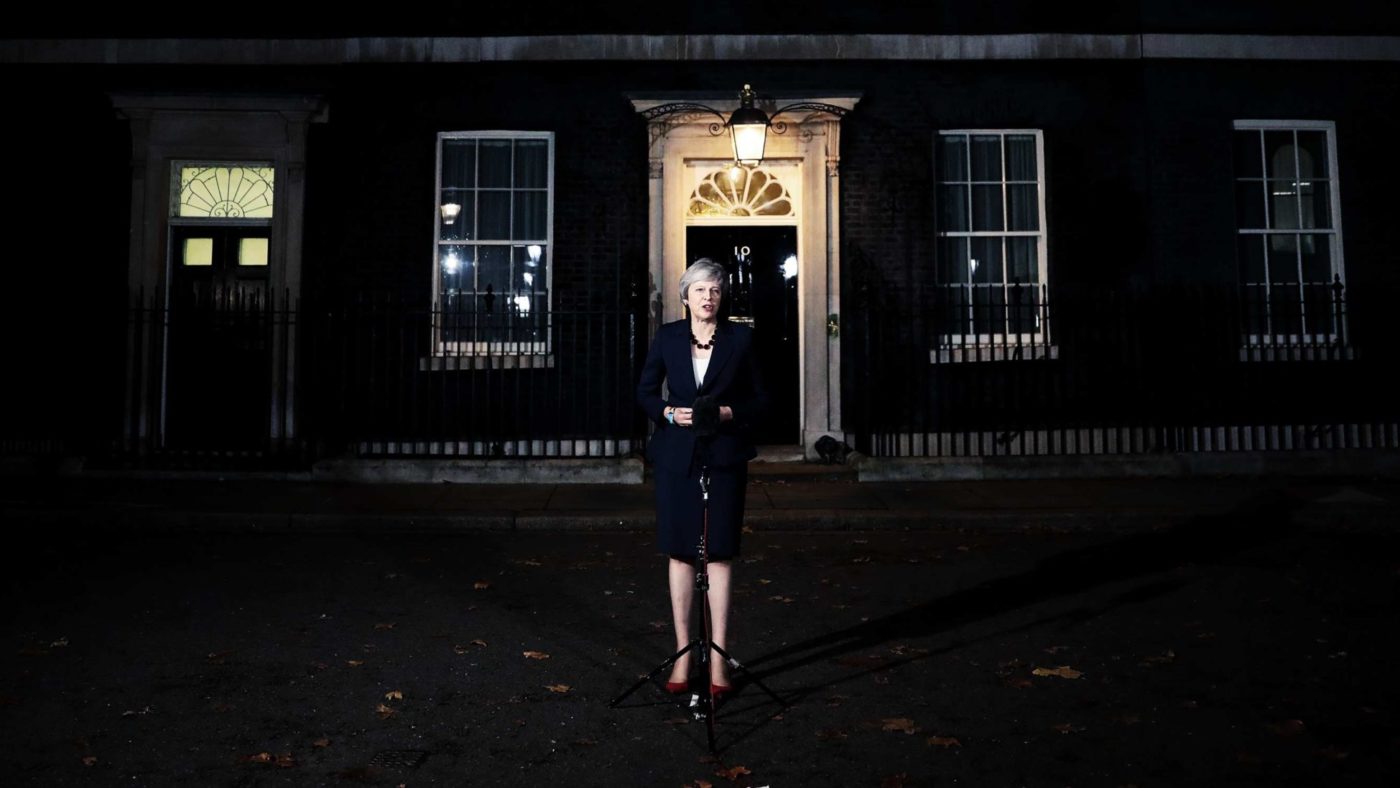In the league table of Tory critics of Mrs May I’d only concede top place to George “I want to chop May up and store the bits in my freezer” Osborne. Before the general election debacle I worried that Mrs May was “much more ‘continuity Cameron’ than a prime minister who [was] delivering the reset that many people hoped that a vote for Leave might initiate”. Afterwards I argued that debacles such as the dementia tax u-turn did not suggest that she had the skills to master Brexit negotiations. But what about now? The deal is secured. What do I think?
Is the UK-EU withdrawal agreement what 17,410,742 Leave voters had a right to expect? No. Has Theresa May fully delivered on the promises she made at the last election and since? No. Is her deal the best Britain could have got? No. Has she out-negotiated the EU? No. Do I want her to handle the next and final stages of Brexit? No.
Would I vote for the deal if I were an MP? Yes. Most definitely, yes.
And how do I reconcile my first five verdicts with the sixth? Because, while inadequate, the Withdrawal Agreement does put us on a road to controlling our borders as well as our agricultural and fishing policies. Once the elongated transition period is over the Treasury will have billions of extra pounds to spend on the NHS and other national priorities. Britain will have escaped the conveyor belt to “ever closer union” that defines the EU project – and which, we learnt this week, is almost certainly heading towards the creation of an EU army.
Within the Agreement I also see a route – albeit a somewhat foggy one — to exit from the Customs Union and, therefore, to the possibility of trade deals with the fastest growing parts of the world.
In addition to all of these gains it is, however, the lateness of the hour that weighs most heavily on my mind. Perhaps I’m wrong to be worried that there are now only 135 days until the clock strikes midnight and the United Kingdom formally leaves the European Union.
Perhaps there’s time for MPs to debate, then vote upon, then play parliamentary ping-pong with the House of Lords on all of the possible next steps. Next steps that might include the PM’s own deal; no deal; the Norway-then-Canada option; the Super-Canada option; the deliberately ambiguous Labour plan for membership of “a” customs union; and the possibility of holding a second (let’s-tear-the-nation-apart-again) referendum. Then there are miscellaneous options “XX”, “YY” and “ZZ” — as the still quite drafty EU Withdrawal Agreement might put it.
Perhaps there’s also time for the PM to resign or be ousted and the Tory Party select a new leader and chief negotiator (which is the inevitable consequence of the Commons rejecting May’s deal). Perhaps there’s time – even so belatedly – to get on with serious (and expensive) planning for no deal.
Perhaps, perhaps, perhaps — but perhaps not.
Much more likely is that time will run out: that the patience of the EU’s negotiators will run out; that voters will run away from a fractious Conservative Party’s game of roulette with the UK economy; and, most critically, that investors will run away from the pound.
That last risk – I’d say, likelihood – is the potential game-changer. We may ride a similarly-shaped rollercoaster that, ten years ago, marked the journey of the US House of Representatives. It voted against the Bush White House’s bailout for crashed banks before voting in favour of it. The volte face happened after Congressmen saw “markets puke” (to quote Rupert Harrison).
Markets go up and down, of course, but Tory MPs shouldn’t assume that even temporary turbulence wouldn’t have an enduring impact. The mortgage rate hikes that took place on September 1992’s Black Wednesday – from an already towering 10 per cent to an eye-watering 15 per cent — may have lasted for less than 24 hours but the damage they did to Tory economic credibility lasted for nearly two decades.
As Tory MPs consider whether or not to vote for Mrs May’s Withdrawal Agreement they cannot afford to dwell exclusively on its strengths, weaknesses and ambiguities. The economic and reputational dangers must also feature prominently in their calculations.
They also need to reflect on their own roles in getting to this point. Brexiteer Tory MPs, in particular, chose to ignore the ditch-May advice that I and many others gave to them nearly 18 months ago. They never decided to either unambiguously back May’s negotiating position or to oppose it. They never gathered the courage to oust her or to communicate to the European Union that she enjoyed their full confidence.
They didn’t act when Article 50 was triggered too early. They didn’t act when May agreed to pay a huge divorce bill before it was clear what Britain would get in return. They didn’t act when it was obvious that the government wasn’t preparing properly for “no deal”.
Even last night, Jacob Rees-Mogg still couldn’t quite abandon the fiction that he and other members of the European Research Group could keep May as leader but dump the deal she has sunk all her credibility into. If the deal is as much of a dog’s breakfast as its opponents in the Parliamentary Conservative Party now insist, they — more than anyone else — deserve to eat it.


